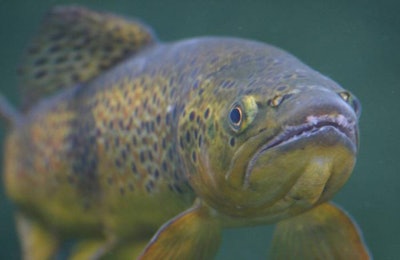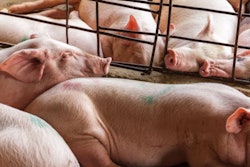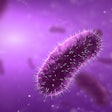
Carnivorous trout grow slowly on fishmeal-free diets due to low feed intake
Despite improvements in digestibility and in the nutritional value of the finished product, trout experience low feed intake and slower growth on fishmeal-free, algae-based diets.
A recent study from the University of California Santa Cruz tracked outcomes of trout fed 100% fishmeal-free diets consisting of three different kinds of algae. Although two of the three algae species tested performed considerably better, and even produced harvested fish with higher levels of omega-3, the fish experienced slower growth than trout fed standard diets.
The researchers fed groups of trout diets consisting of blends of three different algae species, Nannochloropsis sp., Isochrysis sp., and Schizochytrium sp. They determined that Isochyrsis sp and schizochytrium sp showed higher rates of digestibility, and the finished trout fillets contained as much DHA as trout fed a standard diet containing fishmeal, suggesting these two species of algae could hold promise as DHA supplements in trout diets. However, the trout did not grow as quickly on the algae-based diets, regardless of which species they received.
Pallab Sarker, an associate research professor at UCSC and the lead author on the paper, believes the decreased growth rate was caused by low feed intake, likely triggered by an issue with palatability.
“Trout forage on wild fish. They cannot directly eat microalgae,” Sarker said. “But when we make our diet without fishmeal or fish oil, then they don’t find the similar flavor compound.”
Omnivorous fish such as tilapia perform well on diets containing algae likely because they eat algae in the wild.
However, Sarker remains optimistic about the potential to develop a fishmeal-free diet for trout and other carnivorous fish. He has already applied for funding to study feeding stimulants he believes might coerce the fish to increase their intake of algae-based diets.
Algae-based diets hold promise for species such as trout and salmon because of their potential to restore omega-3 content in farmed fish. As the amount of fishmeal and fish oil in aquafeed has declined due to economic and environmental pressures, farmed fish have seen a similar decrease in nutritional value compared with wild-caught fish.
“We are moving forward,” Sarker said, “but we need to do more research toward the sustainable development of feed for trout.”














